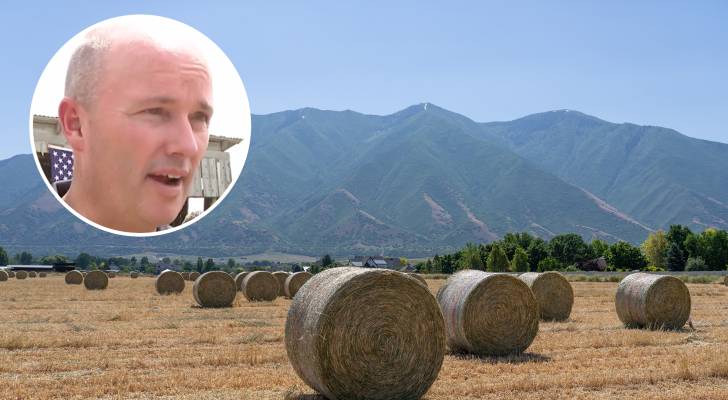Utah is building a legislative wall when it comes to foreign investors purchasing land.
Governor Spencer Cox emphasized this new approach when discussing the blocked sale of a property near Provo Airport. Officials had realized that the purchasing company was linked to the Chinese government.
Don’t miss
“We will not allow adversarial foreign entities to buy up strategic land in our state,” Cox said during a press conference held on a fifth-generation family farm in Palmyra. “The proposed investment was millions of dollars and hundreds of jobs. I don’t care. We are not for sale.”
Utah is one of 26 U.S. states that have passed laws restricting foreign ownership of land, particularly near military installations and other secure institutional landmarks.
The move aligns with a broader national push to limit land sales to individuals or corporations tied to countries deemed national security threats, such as China, Russia, Iran and North Korea.
What is behind the blocked land deal?
The Provo land deal reportedly involved Cirrus Aircraft, a majority state-owned business that manufactures drones and aircraft under the Aviation Industry Corporation of China (AVIC) umbrella. According to Utah officials, the company’s ties to the Chinese government violated a state law that bans people or companies from “adversarial” nations from purchasing property in the state.
State land purchase amendments, made in 2024 and sponsored by Rep. Candice Pierucci (R-Herriman), have already led to the forced sale of over 35,000 acres in Utah. That owned land fell under the amendments’ restricted foreign entity definition. It also bans new land acquisitions near sensitive areas and limits access to secure government facilities.
“Utah sits at the nexus of national security,” said Cooper Wimmer, executive vice-president of Strider Technologies, a Utah-based data firm. “We’ve got the NSA, Hill Air Force Base, Special Forces groups — so it makes us a target for foreign influence.”
Utah’s efforts mirror the federal government’s National Farm Security Action Plan, which was introduced in August to ban land purchases by Chinese nationals and other foreign entities. Agriculture Secretary Brooke Rollins called it a response to a “massive threat” to national security. Defense Secretary Pete Hegseth added that the Pentagon would block foreign land purchases near military bases in the future.
“As someone who’s charged with leading the Defense Department, I want to know who owns the land around our bases,” Hegseth said.
Stay in the know. Join 200,000+ readers and get the best of Moneywise sent straight to your inbox every week for free. Subscribe now.
How much U.S. land does China own?
According to the U.S. Department of Agriculture, Chinese interests held roughly 277,000 acres of American farmland as of the end of 2023.
Foreign-owned land makes up just over 3% (40.83 million acres) of the total agricultural land in the United States. Canada owns the most with 0.97%, then the Netherlands at 0.37% and Italy at 0.21%, according to the Farm Service Agency.
Of that, companies and individuals from adversarial countries hold just 1%, according to researchers at Cornell University.
“There’s been talk, especially now during election season, that China is trying to potentially control millions of acres of U.S. farmland,” says Wendong Zhang, assistant professor and extension economist at the Charles H. Dyson School of Applied Economics and Management. “The percentage of land that is under foreign control, either through purchases or long-term leases, is very low overall.”
Critics argue that allowing restricted foreign entities to own land near military facilities or within the food supply chain could threaten national security. Concerns include surveillance, sabotage and the use of land to influence local school districts and universities.
Others warn that the fears are exaggerated. Foreign investments can boost rural economies and fund infrastructure improvements. In many cases, these purchases are made by international companies with no political ties.
Still, Utah lawmakers said they prefer to err on the side of caution. Pierucci is already crafting new legislation targeting water infrastructure and Chinese-made technologies.
“Water is a critical resource,” she said. “We’re going to do an assessment on the vulnerabilities we have in our water system.”
For Utah residents, the law may create a sense of improved security, but it could have unintended side effects. Developers may see less funding from international investors, and farmers hoping to sell land might face a smaller pool of buyers. As Utah and the federal government continue to take action, more states may follow suit with similar laws.
What to read next
This article provides information only and should not be construed as advice. It is provided without warranty of any kind.









